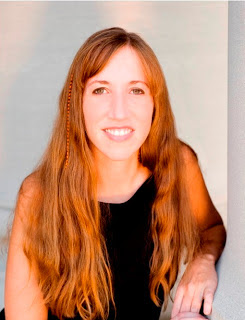In NO KIDDING, comedy writer
Henriette Mantel tackles the topic of actually not having kids. This
fascinating collection features a star-studded group of contributors—including
Margaret Cho, Wendy Liebman, Laurie Graff, and other accomplished, funny women—writing
about why they opted out of motherhood. Whether their reasons have to do with
courage, apathy, monetary considerations, health issues, or something else
entirely, the essays featured in the pages of NO KIDDING honestly (and
humorously) delve into the minds of women who have chosen what they would call
a more sane path.

What are you reading right now?
THE
ABOUNDING RIVER.
What first sparked your interest in
writing?
I
couldn't draw what I was thinking so I decided to write it. I liked to tell
people what I was thinking about.
What do you love the most about writing? The
least?
I
can't remember who said it but "The best part of writing is having written."
The
least? Starting up.
Tell us a little about your writing
process.
I
have to have a deadline, even if it's with myself or else I procrastinate too
much. I write best from 6am-11am. I only write after 4pm if I am forced to do so.
I
just start. Then I edit all the garbage I wrote before my consciousness kicked
in.
What are your passions?
Oh
boy. I love the land I grew up on in Vermont. I like to paint walls. If I
could I would do yoga 5 times a day.
What inspires you?
Inequity,
inequality, underdogs being shit on. My cats. My depression.
How was NO KIDDING born?
I
had a boyfriend with a kid that I was attached to and that is what my essay was
about. She made me think about how I never wanted a kid and what having a kid
would entail. Then I was watching some of my comic friends read from a book of
essays about having kids and all their experiences and I said to my friend Lew,
"Yea well what about ME?" and he said, "Well, write one."
so I did.
You edited the collection as well as
contributed your own essay. Was either role - editor or writer - more fun than
the other?
I'm
not going to say editing wasn't fun but...dealing with 35 personalities, mostly
women comics was interesting to say the least. I'm proud of my essay, but when
I wrote it I wanted to write something "not funny.” Then after it got
published, I thought…wow, that was a definite odd choice for me.
How did you decide who else would
contribute?
I
called some friends and it snowballed. I basically asked anyone I spoke to for
3 months straight.
Did you know without a doubt what you
would write about in your own essay or did you have a few topics from which you
narrowed it down?
I
wrote my essay before I sold the book.
Was it difficult writing about something
so personal?
Being
a (former) stand-up I'm used to spilling my heart out. But yes, it's a
little different on paper. It's all so real.
Do you have any advice for aspiring
authors?
Just
write with wild abandon and don't stop. Don't give up. Keep writing. And
rewriting. And rewriting....
Is there anything else you would like to
tell us about yourself?
When
I was in 7th grade I won the Vermont Forestry Essay. The topic was "What
Vermont Forests Mean to Me"... I will never forget how many times I wrote
it over and over so it was perfect.




